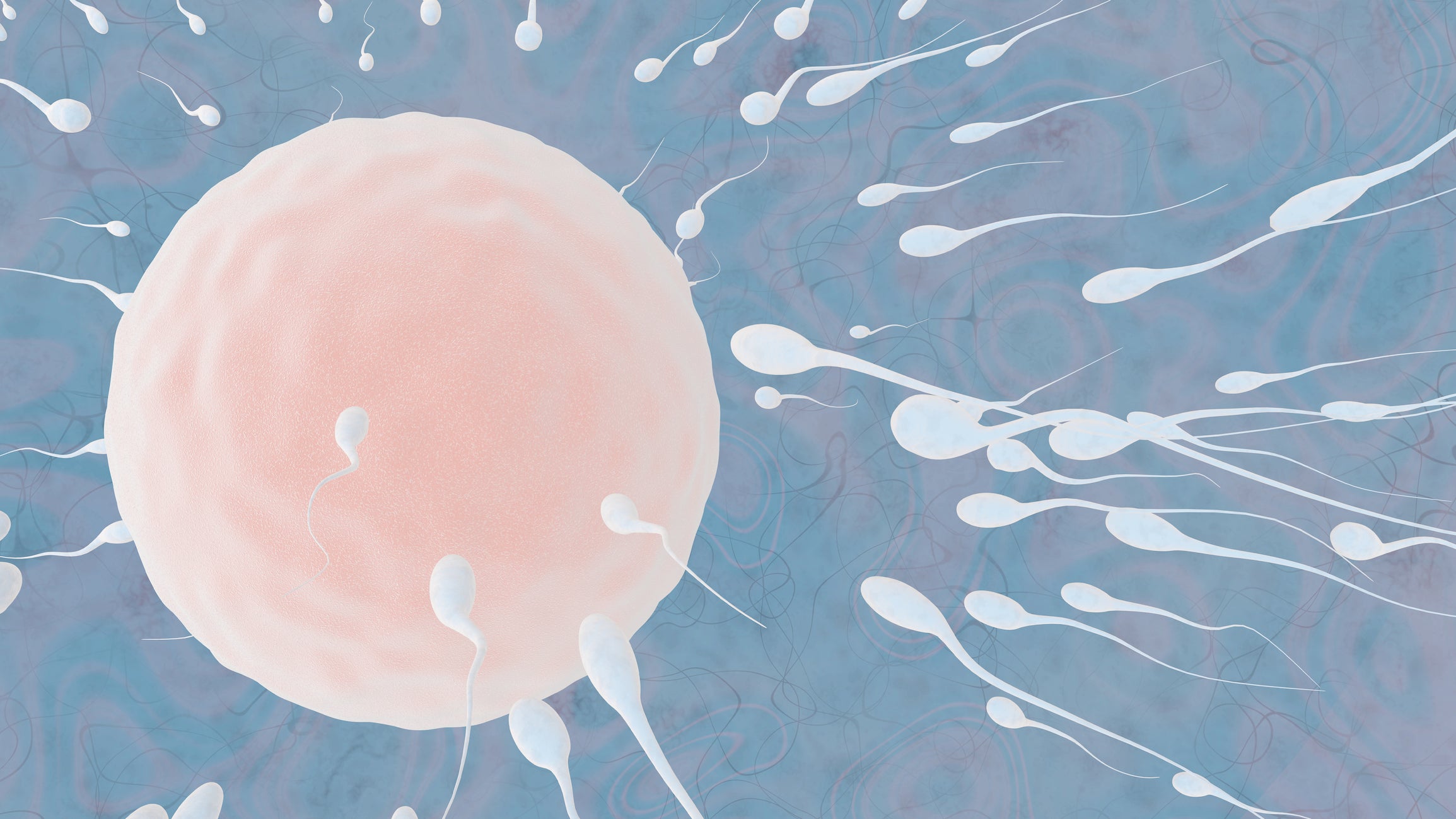-
How to Spend More Time with Your Kids

Dr. Anthony P. Witham, president of the American Family Institute, coined the phrase, “Children spell love…T-I-M-E.” But if you’re like most parents, time is a resource you have very little to spare. You know spending quality time with your kids is vital for their health and happiness, but how can you possibly squeeze an extra hour or two out of your already jam-packed day? Just follow these tips.
- Integrate together time into your daily routine: Children love to help, so bring them along to the grocery store, post office, or other errands you have to run. Then, let them help you prepare dinner, bake cookies, or do chores. You can even do yoga stretches or go running together, which benefits you and your child’s health alike.
- Carve out 15 minutes in the morning: Can you get up 15 minutes early to give your child one-on-one attention before work? Maybe eat breakfast together or go for a quick walk around the block. 15 minutes might not sound like much, but it could make a world of difference to your child.
- Make bedtime stories a must: If you can squeeze more time out of your mornings, you can probably find another 15 minutes at bedtime to read a short story or a chapter of a book together.
- Schedule recurring dates: You might do weekly family movie nights, family game nights, or rotating one-on-one dates with each of your kids every Saturday. Whatever it is, put it on the calendar and schedule your busy life around it.
- Camp in the backyard: You may not have a whole weekend to spare for a family camping trip, but how about one evening? Your kids will love setting up tents in the backyard or even sleeping in the living room. Just a slight change of pace is all you need to make lasting memories together.
- Choose time with your child over time on your phone: You may think you have no free time, but track your phone usage, and you might discover you have more time to spare than you realized. Trade some of this “tech time” for one-on-one time with your kids.
- Prioritize family meals: Make an effort to eat at least one meal with your children every day. When you’re short on time, look for meals and snacks requiring very little preparation. Then, chat while you eat.
- Write notes: When together time just isn’t possible that day, write a message to your child and leave it in their lunch box, by their toothbrush, or on the fridge for them to find.
Do you need help reaching your goal of becoming a dad? Dr. Joshua Green of the Center for Vasectomy Reversal is here for you. We believe healthy families start with healthy pregnancies, and we’ll help you get there by performing a safe, effective vasectomy reversal. To discuss your surgical options, please contact our clinic in Sarasota, FL, at 941-894-6428 and schedule your free consultation today.
-
When Does a Baby Start Walking?

The average age for a baby to walk unassisted is about 12 months. Still, some babies take their first steps before nine months old, while others don’t reach this milestone until 18 months or older. So how can you tell when your baby is almost ready to walk? And can walking toys help your baby learn to walk at a younger age?
Signs Your Baby will Start Walking Soon
Babies must hit a few milestones before they’re ready to walk. These include:
- Pulling up into a standing position: In an attempt to change their vantage point, babies will grip furniture or hold onto someone to pull themselves up to standing. On average, babies learn this ability about four months before taking their first independent steps.
- Walking with support: At this stage, babies have the strength and coordination to shift their weight from one leg to another. They can walk while holding Mom or Dad’s hands and cruise along the edge of the sofa. Independent walking usually emerges about three months after babies start walking with support.
- Standing unassisted for several seconds: Many babies start walking within two to three months of standing on their own. But some will enthusiastically try and try again, taking their first surefooted steps within just a few days of learning to stand.
- What about crawling? Many parents are surprised to learn that crawling is not a required milestone for walking. In fact, some babies never crawl before they learn to walk.
Can Walking Toys Help Babies Walk Sooner?
Walking toys, also called locomotor toys, are designed to be pushed, pulled, or rolled along the ground. While these toys reward babies with fun sounds or motions as the toy moves, studies show that walking toys don’t motivate babies who aren’t yet walking to take their first steps. However, they do encourage babies who are already on the go to take a few more steps before coming to a halt.
So what about baby walkers? These rigid-framed devices on wheels with a seat suspended in the middle might sound like a shortcut for learning to walk. However, experts warn parents against them. Instead of being a helpful aid, walkers are a counterproductive crutch, encouraging infants to develop abnormal postures and gait patterns that may actually delay independent walking.
When to be Concerned About a Late Walker
A vast majority of children who still aren’t walking after their first birthday go on to develop normally. But if your baby still can’t walk independently by 18 months, it’s time to bring it up with your pediatrician.
Are you ready to welcome a baby into your home, who will eventually take their first wobbly steps with your help? If you had a vasectomy in your younger years, don’t fret—Dr. Joshua Green of the Center for Vasectomy Reversal can help you become a father through safe, effective vasectomy reversal. To learn more about your surgical options, please contact our clinic in Sarasota, FL, by calling 941-894-6428.
-

Did you and your partner just find out you’re expecting? Congratulations! Whether you choose to tell family and friends right away or wait a few weeks, consider breaking the news with one of these cute pregnancy announcement ideas.
In-Person Pregnancy Announcement Ideas
- Something’s cooking: Host a dinner party and invite close friends and family you want to tell about the pregnancy before anyone else. Then, casually announce, “Something else is cooking in the oven.” Try not to smile too big as you wait and see how long it takes someone to figure out what you mean.
- Cake lettering: Bake a cake or have one delivered from a local bakery with the words, “We’re having a baby!” written in icing. Then, celebrate with your loved ones while you enjoy the dessert.
- Puzzle: Have a 25-piece puzzle personalized with the words, “We’re expecting!” or something similar. Bring it to a sibling’s home to work on with your niece or nephew. Once the puzzle is finished, it won’t take long for everyone to piece it together!
Photo/Social Media Pregnancy Announcement Ideas
- Baby shoes: Do some early baby clothes shopping, and pick out an adorable pair of shoes. Then, take a photo of them lined up with you and your partners’ shoes to make the announcement.
- Elegant sign: Write on a small chalkboard, arrange letters on a letter board, or frame a typed-up announcement. Then, have your photo taken as you and your partner pose while holding the sign.
- Beach announcement: Write a message about expecting a baby in the sand and take a picture to send to family and friends.
- Bump ahead: Take a photo of your pregnant partner posing by a street sign to playfully announce her impending baby bump.
- Ice, ice, baby: Have your picture taken while holding two bags of ice as your partner points to her stomach. Looking at the photo, people should understand that you’re referencing the words to a Vanilla Ice song.
- Sports announcement: If you and your partner are sports fans, have personalized jerseys made for both of you and your upcoming arrival. Then, pose for a photo holding the tiny jersey with the caption, “Adding a third player to the team on [your due date].”
- Involving your fur baby: If your dog or cat is more than just a pet, plan a photo shoot for the animal to announce your pregnancy. Have them sit by a sign that reads, “Baby guard duty starts on [your due date],” or put them in a shirt that says, “Big brother” or “Big sister” while sitting next to an ultrasound picture.
Did you have a vasectomy in your younger years, but now you’ve decided you want to be a dad after all? If so, reach out to Dr. Joshua Green of the Center for Vasectomy Reversal. We are leaders in helping men become fathers through safe, effective vasectomy reversal. To learn more about your surgical options, please contact our clinic in Sarasota, FL, by calling 941-894-6428.
-
What is Semen Aspiration?

Semen aspiration, also referred to as sperm retrieval, is a medical procedure used to collect sperm from the male reproductive tract body for use in fertility treatments. The sperm retrieved are used to fertilize the eggs of the female partner through in vitro fertilization (IVF). There are many different techniques that can be used for sperm retrieval, and the best method will depend on the individual’s situation.
There are several reasons why this procedure may be necessary, including sperm transport disorders, blockages in the reproductive tract, or a lack of sperm production. Read on to learn more about semen aspiration, why it’s done, and what to expect during the procedure.
What to Expect During Semen Aspiration Treatment
There are a few different methods of semen aspiration treatment. The sperm may be retrieved from the testicles, epididymis, or vas deferens. In some cases, the sperm may be obtained from the ejaculate.
Semen aspiration is typically performed under sedation or anesthesia. A needle is used to retrieve the sperm, which are then collected in a sterile container. The procedure usually takes less than 30 minutes.
In most cases, semen aspiration is successful in retrieving sperm for use in IVF. Semen aspiration is considered a low-risk fertility treatment and has a high success rate.
What Are the Risks of Semen Aspiration?
Although semen aspiration is generally safe and effective, there are some risks associated with the procedure.
First and foremost, there is a small risk of infection. The uterus is a sterile environment and introducing bacteria from the outside can lead to an infection. There is also a slight risk of puncturing the uterus, which can cause internal bleeding. In very rare cases, this can lead to serious health complications.
There is a very small risk that the needle used to aspirate the semen will damage the embryo. However, this is typically only a concern when aspiration is performed before implantation has occurred.
Overall, while there are some risks associated with semen aspiration, they are generally very rare and can be effectively mitigated with proper medical care. As such, semen aspiration remains a safe and effective way to collect genetic material. Risk can be minimized by working with an experienced medical professional.
Why is Sperm Retrieval Needed?
The most common reason for needing sperm retrieval is due to a blockage in the man’s reproductive tract. This blockage can occur at any point along the way, from the testicles to the opening of the penis. A blockage can be caused by an injury, surgery, or a birth defect.
In some cases, a man may have no sperm in his ejaculate at all. This is called azoospermia and can be caused by several factors, including infection, cancer, and other conditions.
Why Choose Us?
The Center for Vasectomy Reversal in Florida is one of the world’s leading fertility centers, offering a wide range of fertility treatments to help couples conceive. Sperm retrieval is used for men who have had a vasectomy or for those who have a condition that prevents them from producing sperm.
At CVR, our experienced team offers a variety of sperm retrieval techniques, including microsurgical epididymal sperm aspiration (MESA), percutaneous epididymal sperm aspiration (PESA), and testicular sperm extraction (TESE). We also offer intracytoplasmic sperm injection (ICSI), which can be used in conjunction with any of these techniques. Our goal is to help you conceive the healthy baby you’ve always wanted. Contact us today to learn more or to schedule a consultation!
-
Common Myths About Getting Pregnant

Trying to get pregnant can be an exciting and nerve-wracking time. You may have many questions about your fertility and what you can do to increase your chances of conceiving. Unfortunately, there is a lot of misinformation out there about fertility. To help you separate fact from fiction, here are answers to some common myths about getting pregnant:
Myth 1: You’re Most Fertile in Your 20s
Fact: Your 20s are a great time to start trying for a baby, but your fertility actually starts to decline in your early 30s. By age 35, your chances of getting pregnant each month are only about 20 percent. So, if you’re in your mid-30s or older and hoping to conceive, don’t wait too long to start trying.
Myth 2: You Can’t Get Pregnant if You’re Overweight
Fact: It’s true that being overweight can make it more difficult to get pregnant, but it’s not impossible. In fact, many overweight women are able to conceive with no problem. The key is to maintain a healthy weight by eating a balanced diet and getting regular exercise. If you’re having trouble conceiving, talk to your doctor about ways to lose weight safely.
Myth 3: Stress Can Affect Your Fertility
Fact: There’s no evidence that stress can directly impact your fertility. However, stress can indirectly affect fertility by causing you to adopt unhealthy behaviors, like smoking or drinking alcohol. If you’re feeling stressed about getting pregnant, try to find healthy ways to cope, such as exercise or relaxation techniques.
Myth 4: You Can’t Get Pregnant if You Have PCOS
Fact: Polycystic ovary syndrome (PCOS) is a common condition that can make it difficult to get pregnant. However, it’s not impossible. With treatment, many women with PCOS are able to conceive. If you have PCOS and are having trouble getting pregnant, talk to your doctor about fertility treatments that may help.
Myth 5: You Can’t Get Pregnant if You Have Endometriosis
Fact: Endometriosis is a condition that can cause pain and Infertility. However, it’s important to note that not all women with endometriosis are infertile. In fact, many women with mild endometriosis are able to get pregnant with no problem. If you have endometriosis and are having trouble conceiving, talk to your doctor about fertility treatments that may help.
Myth 6: You Can’t Get Pregnant if You Have Fibroids
Fact: Fibroids are non-cancerous growths that can develop in the uterus. They are very common, and most women who have them will never experience any symptoms. However, in some cases, fibroids can cause Infertility. If you have fibroids and are having trouble conceiving, talk to your doctor about fertility treatments that may help.
Myth 7: You Can’t Get Pregnant if You Have a History of Miscarriage
Fact: A history of miscarriage can be heartbreaking, but it doesn’t mean you’ll never be able to have a baby. In fact, most women who have had a miscarriage go on to have a healthy pregnancy. If you’ve had a miscarriage and are hoping to conceive again, talk to your doctor about ways to reduce your risk of miscarrying.
Myth 8: Infertility is Reversible in Every Case
Fact: While there are some cases of infertility that can be reversed, such as blocked fallopian tubes, many other causes of infertility are not reversible. However, that doesn’t mean you’ll never be able to have a baby. There are many fertility treatments available that can help you conceive, even if you have a condition that is not reversible.
Myth 9: Overall Health Doesn’t Connect with Your Fertility
Fact: Your overall health does play a role in your fertility. Conditions like obesity, diabetes, and high blood pressure can all impact your ability to get pregnant. That’s why it’s so important to maintain a healthy lifestyle if you’re hoping to conceive. Eating a nutritious diet, getting regular exercise, and managing stress can all help improve your fertility.
Myth 10: IVF is Too Expensive to Consider
Fact: In vitro fertilization (IVF) is one of the most expensive fertility treatments available. However, it’s also one of the most successful. If you’re struggling to conceive, IVF may be an option worth considering. There are many financing options available that can make IVF more affordable. Talk to your doctor about whether IVF is right for you.
If you are considering fertility help, you may want to consider The Center for Vasectomy Reversal in Florida. Our center is known for providing high-quality care and services to patients who are seeking help with their fertility. Our staff at The Center for Vasectomy Reversal is highly trained and experienced in helping patients achieve successful pregnancies. In addition, we offer a variety of services that can help you become pregnant. Contact us today to learn more!
-
Baby Safety Month

Baby Safety Month is an annual campaign that raises awareness about the importance of child safety. The campaign runs throughout the month of September and offers parents and caregivers tips and resources on how to keep their children safe.
Some of the topics that are covered during Baby Safety Month include: car safety, home safety, water safety, and general safety tips.
The History of Baby Safety Month
The history of Baby Safety Month actually dates back to the early 20th century. In 1913, the American Academy of Pediatrics (AAP) held its first meeting in New York City. At this meeting, the AAP decided to create a committee on infant care. This committee was tasked with creating guidelines for the care of infants and young children.
One of the first topics that the AAP addressed was infant mortality. In 1916, the AAP released a report that showed that over 6,000 infants died each year from crib death. This was a shocking number and the AAP realized that something needed to be done to prevent these deaths.
To raise awareness about infant safety, the AAP decided to designate September as Baby Safety Month. During this month, the AAP would release information and tips on how to keep babies safe. The goal was to educate parents and caregivers about the dangers that infants faced and how to prevent them.
Over the years, Baby Safety Month has continued to grow. Today, it is celebrated in countries all over the world. In the United States, many organizations participate in Baby Safety Month by sharing information and resources with parents and caregivers. These organizations include the AAP, Centers for Disease Control and Prevention (CDC), National Highway Traffic Safety Administration (NHTSA), and many others.
During Baby Safety Month, take time to think about how to keep your little one safe. Here are a few tips to get you started:
Always Use a Safe Sleep Surface for Your Baby
This means using a firm mattress in a crib or bassinet that meets current safety standards. Don’t use a pillow, quilt, or soft mattress, as these can increase the risk of Sudden Infant Death Syndrome (SIDS).
Use a Proper Car Safety Seat
Car safety seats are chosen based on your baby’s age, weight, and height. Make sure the seat is installed correctly and that your baby is buckled in properly.
Keep Dangerous Items Out of Reach of Your Baby
This includes items like medicines, cleaning products, and small objects that your baby could choke on.
Supervise Your Baby at All Times
Even if you’re just stepping away for a moment, never leave your baby unsupervised.
Be Prepared for Emergencies
Learn CPR and First Aid and keep the phone number of your local poison control center handy.
Following these tips will help you keep your baby safe during Baby Safety Month and all year long. For more information on child safety, visit the website of the National Child Safety Council.
As a parent, you play a vital role in keeping your child safe. Take this opportunity to learn more about how you can protect your little one from harm. And don’t forget to share what you’ve learned with other parents and caregivers! Together, we can help keep all kids safe.
Get more tips and information by visiting our blog! The Center for Vasectomy Reversal in Florida is happy to answer any questions you have and help you make the best decision for your fertility. Contact us today to schedule a consultation.
-
Healthy Baby Food to Make at Home

There are many healthy baby food recipes that you can make at home, and they don’t have to be boring or bland. You can make nutrient-rich, flavorful, and fun foods for your little one to enjoy. Read on to learn more about the benefits of homemade baby food and to get some tips on how to get started.
The Benefits of Homemade Baby Food
The benefits of making your own baby food at home have prompted many parents to do so. Homemade baby food is:
- More Nutritious: When you make your own baby food, you have complete control over what goes into it. This means that you can choose to use fresh, organic ingredients that are high in nutrients. Commercial baby foods often contain preservatives and other additives that can be harmful to your child’s health.
- More Affordable: Making your own baby food is typically more affordable than purchasing commercial varieties. This is especially true if you purchase ingredients in bulk or grow your own fruits and vegetables.
- Tailored Flavor and Texture: You can tailor the flavor and texture of homemade baby food to better suit your child’s preferences. For example, if your baby is still getting used to solid foods, you can make a puree that is easy to eat and digest. As your child gets older, you can start to add in more textured foods such as chunks of fruit or vegetables.
- Quality bonding time: One of the best parts about making your own baby food is the quality bonding time it provides. During mealtimes, you can sit down with your little one and chat while they enjoy their food. This is a great way to create lasting memories together.
Ensure that your baby is getting the nutrients they need by making your own baby food. That way, you can control what goes into it and how it is prepared. Plus, homemade baby food often tastes better than store-bought varieties.
Ideas to Get You Started
If you’re interested in trying your hand at making homemade baby food, there are a few things you’ll need to get started. First, invest in a good quality blender or food processor. You’ll also need some basic kitchen supplies like measuring cups and spoons, as well as storage containers for freezing any leftover baby food. Finally, it’s helpful to have a recipe book on hand for ideas and inspiration. With these tools in hand, you’re ready to start whipping up healthy, delicious meals for your little one!
Healthy Baby Food Recipes
When it comes to healthy baby food recipes, there are endless possibilities. Here are some ideas to get you started:
- Pureed fruits and vegetables: These are great for starting solids or for older babies who are ready for more textured foods. Try pureeing carrots, sweet potatoes, peas, apples, bananas, and other fruits and veggies. You can also mix and match different flavors to create new taste combinations.
- Fruit and veggie pouches: These are convenient and easy to take on the go. Simply fill reusable pouches with your baby’s favorite pureed fruits or vegetables.
- Homemade baby cereals: Start with a simple rice cereal and then add in pureed fruits or vegetables for additional nutrition and flavor. Oats and barley are other great options for homemade baby cereals.
- Finger foods: As your baby starts to develop their pincer grasp, they will be ready for finger foods. Offer them soft fruits and vegetables that they can easily pick up and eat, such as ripe bananas, cooked sweet potatoes, and steamed broccoli florets.
- Healthy snacks: There are plenty of healthy snack options for babies and toddlers. Try making your own fruit bars or energy bites using pureed fruits, oats, nuts, and seeds. You can also offer air-popped popcorn, whole grain crackers, and yogurt dips.
Making your own baby food is a great way to ensure that your little one is getting the nutrients they need. And it’s also a fun way to get creative in the kitchen! Try out some of these healthy baby food recipes and see what your little one enjoys the most.
Visit our blog to stay up-to-date with information and tips for healthy parenting and more! The Center for Vasectomy Reversal in Florida is helping families across the country reach their fertility goals. Contact us today to schedule a consultation.
-
How To Teach Your Kids To Compromise

The art of compromise is essential in business, politics, and marriage. It’s also a crucial life skill for your child. The ability to be flexible, to take into account the wants and needs of others, and to solve problems creatively makes our children better friends, siblings, teammates and students. Of course, we’re not born with those skills. They must be learned.
MommyBase.com offers many tips for teaching children compromise skills:
- Discuss a Variety of Issues with Your Kids. “Many children’s books, movies and tv shows, including cartoons, include some sort of conflict. This gives you a perfect opportunity to ask your child for his or her thoughts about which character was right or how a conflict might be resolved so that both characters are happy. If that is too much for your child, you can discuss the ending, explaining more thoroughly how the characters acted to make a compromise.”
- Address the Issue of Control. “Many times, children do not like to compromise because it means they are not in control.” They suggest working through this problem with simple methods:
- Offer easy choices like “Would you like to wear this outfit or this dress?” or “Would you like pizza or pasta for dinner tonight?”
- Explain how you and your spouse compromise.
- Observe how your children interact and suggest ways for them to figure out compromises on their own. If they fight over a toy, stop them and pose questions that help them reflect: “Why do you want this toy? Why does your friend want it? Is there a way you can each get at least some of what you want?” Praise them when they compromise.
Family Times has additional advice:
1) Create situations of positive interdependence – Competitive play is fine, but teamwork is more important.
2) Teach “Win-Win” – Seek solutions where all parties are successful.
3) Agree to Disagree – Sometimes a solution where everyone is satisfied is not possible. If your child knows it’s okay to not always agree with someone, they’ll be more able to find alternative solutions that avoid conflict.
4) Debate Skills – In debates, one must understand multiple sides of an issue and respond to arguments in a logical, non-emotional way. This requires self-control and can help children learn to resolve disputes peacefully.
5) Discuss Empathy and Compassion – When children understand how to view a situation from the other party’s emotional perspective, compromise is more likely.
6) Don’t Compromise Values or Safety – Let your children know when a compromise might not be the right decision.
At the Center for Vasectomy Reversal, we love helping people start families with healthy pregnancies. We pride ourselves on helping men improve their fertility through uncompromising, concierge-level patient care. Under the direction of Dr. Joshua Green, our team provides state-of-the-art treatment for men who need a reversal of their vasectomy or have other fertility concerns. To learn more, contact us through our website or call 941-210-6649.
-
Why It’s Important For Parents To Get Enough Sleep

Most parents have heard that it’s vital for them to get a good night’s sleep, but when we don’t know the details of why something is so important, it’s easy for us to shrug off this advice. Here are some useful facts that underscore why maintaining a healthy sleep schedule is a crucial habit for parents.
Problems Caused by Lack of Sleep
SleepFoundation.org lists the following complications of sleep loss:
- Irritability: With insufficient sleep, people are more irritable, anxious, and likely to lash out at children, spouses, friends and co-workers.
- Anxiety and Depression: Without proper sleep, people have higher risks for negative moods, anxiety and depression. If you experience these symptoms, reach out to your health care provider.
- Accidents and Injuries: Sleep-deprived people tend to have longer reaction times, which increases the risk of accidents such as motor vehicle crashes. Avoid driving or operating other machinery when you are sleep-deprived.
All these complications affect our ability to parent our children.
Can I Catch Up On Sleep Over the Weekend?
Many parents think they can catch up on sleep during the weekend, but a 2019 study indicates this is a bad practice. It found that weekday sleep loss had negative effects on metabolism, and extra sleep on the weekend didn’t help fix it. The sleep-deprived people in the study lost some sensitivity to insulin, a hormone that regulates blood sugar. They ate more at night and gained weight. This decreased insulin sensitivity is a common precursor to type 2 diabetes. A number of studies have linked long-term sleep deprivation to high risks of diabetes and obesity. According to sleep specialist Dr. Phyllis Zee, who is also a professor at Northwestern University School of Medicine, other results of chronic sleep loss — including impaired alertness and mental performance — cannot be compensated for with a couple of nights of extra sleep. “Regularity in both timing and duration of sleep is key to brain and body health.”
Good Habits
This article from Harvard Business Review reinforces the negative effects that sleep deprivation has on parents but also gives advice on fixing this problem:
- Prioritize sleep.
- Maintain a consistent sleep routine.
- Limit exposure to blue light at night.
- Keep devices out of your bedroom.
- Don’t bring up serious topics before bedtime.
- Buy time if you can by having meals or groceries delivered.
SleepFoundation.org has other tips:
- Nap when baby naps.
- Be comfortable declining requests to come see the baby when you don’t have time.
- A good sleep environment is cool, quiet and dark.
- Ask for help when you need it.
- Start sleep-training baby at six months.
At the Center for Vasectomy Reversal, we love helping people start families with healthy pregnancies. We pride ourselves on helping men improve their fertility through uncompromising, concierge-level patient care. Under the direction of Dr. Joshua Green, our team provides state-of-the-art treatment for men who need a reversal of their vasectomy or have other fertility concerns. To learn more, contact us through our website or call 941-210-6649.
-
Fun Facts About Semen

Here’s a well-known fact that we rarely mention: None of us would exist without semen. Why stop there? Let’s learn more about this fluid vital for human life.
Semen vs Sperm
People use these terms interchangeably, but they mean different things. Stated simply, semen is the bodily fluid that contains sperm.
What Else Is In Semen?
In addition to sperm, semen also contains other ingredients. According to WebMD, “the fluid is made mostly of water, plasma, and mucus (a lubricating substance). It also contains 5 to 25 calories, and is made up of small amounts of essential nutrients including: calcium, citrate, fructose, glucose, lactic acid, magnesium, potassium, protein and zinc.” These ingredients serve an important purpose. Sperm “need nutrients because they must travel a great distance and withstand the harsh environment of the vagina. The nutrients found in semen will keep the sperm alive and provide energy while they race to the egg. Their main energy source is fructose, a type of sugar.”
Sperm Count / Density
When men ejaculate they release an average of 2-6 milliliters (mL) of semen, or approximately a 1/2 teaspoon to 1 teaspoon. Each milliliter contains an average of 15 million sperm. Sperm count can be affected by lifestyle, environment and age, though healthy men over age 70 still have the potential to have children.
Sperm Motility
Sperm motility is “the percentage of sperm in a sample that are moving, as well as an assessment of how they move,” according to WebMD. “One hour after ejaculation, at least 32% of sperm should be moving forward in a straight line.” And according to Sarah Vij, MD, director of the Center for Male Fertility at Cleveland Clinic, “The optimal timing between ejaculations in a man trying to cause a pregnancy is 24-48 hours to allow for a release of a high number of motile sperm.”
Sperm Life
According to a post from Patricio C. Gargollo, M.D. of Mayo Clinic, “The life span of sperm after ejaculation depends on the circumstances. Ejaculated sperm remain viable for several days within the female reproductive tract. Fertilization is possible as long as the sperm remain alive — up to five days. Sperm can also be preserved for decades when semen is frozen.” One thing keeping sperm alive inside the cervix is cervical mucus.
Healthy Sperm
WebMD gives the following advice for healthy sperm:
- Don’t smoke or use illegal drugs, especially anabolic steroids.
- Avoid toxins such as pesticides and heavy metals.
- Limit alcohol intake.
- Maintain a healthy diet and weight.
- Keep your scrotum cool, because heat slows sperm production. Avoid hot baths and tight pants. Wear boxers instead of briefs.
At the Center for Vasectomy Reversal, we are committed to helping men overcome reproductive issues and start healthy families. We pride ourselves on helping men improve their fertility through uncompromising, concierge-level patient care. Under the direction of Dr. Joshua Green, our team provides state-of-the-art treatment for men who need a reversal of their vasectomy or have other fertility concerns. To learn more, contact us through our website or call 941-210-6649.
Recent Posts
Popular Posts
categories
- Uncategorized
- Sperm Retrieval
- vasectomy reversal
- Emergency
- Dr. Green
- sperm count
- fertility
- male infertility
- MESA
- medical care
- low sperm count
- IVF
- male fertility testing
- anesthesia
- pregnancy
- sperm aspiration
- semen analysis
- post-vasectomy pain syndrome
- infertility
- VE
- anti-sperm antibodies
- older dad
- general anesthesia
- gender reveal party
- post-operative infections
- baby name
- parent
- baby's first year
- fertilization process
- spinal anesthesia
- ACS Fellow
- nutrition tips
- concierge-level care
- fertility planning app
- azoospermia
- out-of-town patients
- V-V
- post-vasectomy reversal
- conceiving
- vasectomy
- vasoepididymostomy
- smoking
- sperm quality
- baby registry
- infographic
- surgical care
- surgical consultation process
- prostate cancer
- baby gender
- family time
- COVID
- Baby Shower
- Child Care
- Halloween Costume Ideas for Babies
- Halloween
- Halloween Safety Tips
- Celebrity Infertility Spotlight
- Postpartum
- testosterone
- Father's Day
- Father
- Men's Health
- Thanksgiving
- Pregnancy Announcement
- Parenting Tips
- Sperm
